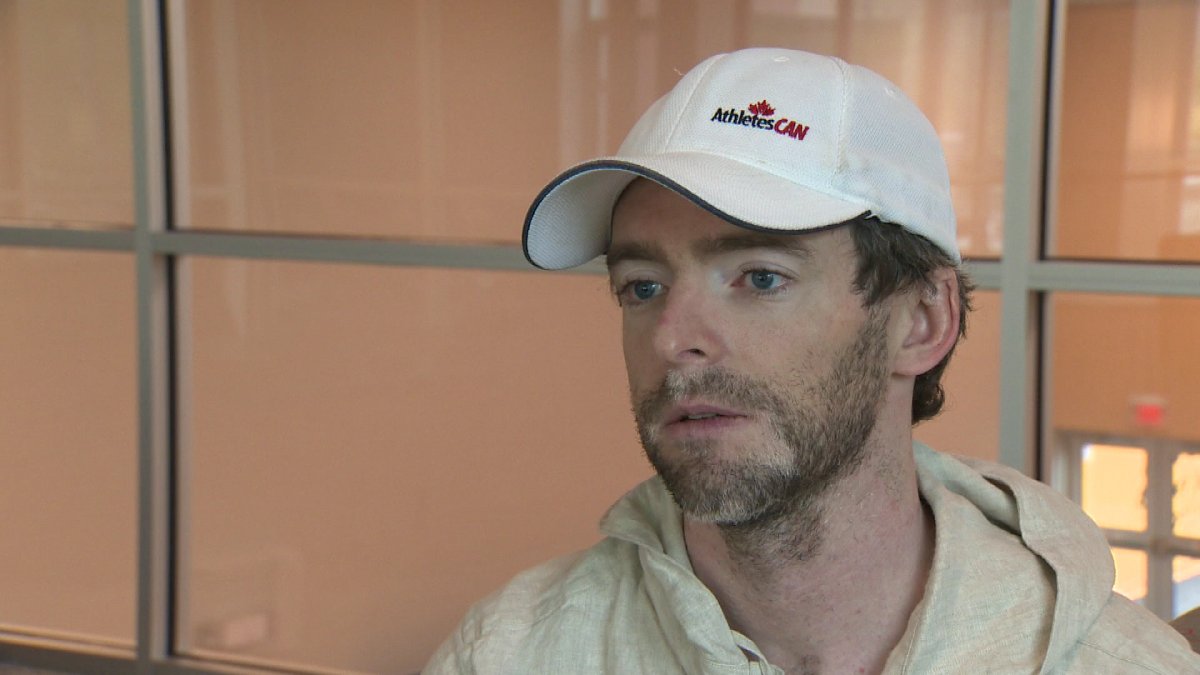HALIFAX – Sailing used to be Oliver Bone’s life.

“What’s amazing about sailing is you’re out on the water,” the 32-year-old Halifax man said. “It’s the freedom. It’s you against nature.”
But things changed after a setback sent the 2008 Olympian spiraling into depression.
Bone, who started sailing at seven years old and had been competing full-time since 2003, had pushed himself physically, financially and mentally to get to the Olympic Games.
“It’s the Olympics. It’s the pinnacle of sport,” he said.
Bone describes qualifying for the Beijing Summer Olympics as “amazing” and says he put everything on the line for a chance to compete in the Games.
However, he and his sailing partner found themselves coming up short.

“It was not the best experience. We underperformed and lost confidence in ourselves right before the Olympics started,” he said.
“It was hard to swallow, a hard pill to swallow.”
“You’re basically doing something for your entire life leading up to an event only to fail.”
Bone had aimed for the London Games but fell into depression, racked up $69,000 in debt and ultimately rolled up his sails and retired in June 2011.
“There were lots of dark thoughts of suicide. How do you cope with the debt? How do you cope with being a failure?”
“I never wanted to step foot in a sailboat again. I said I’m through, I’m done. The sports killed me, wrecked me and ruined me financially and mentally.”
“It really affected my personal life and relationships. There were some days, some pretty dark days where I can’t really tell you what I did or what happened.”
Though he knew he was not himself, Bone says he did not know he had depression until he took a management class at SMU and studied a chapter on depression in employees.
He realized he saw a lot of the points in himself and says reading the chapter helped him acknowledge his problem.
- ‘Bacterial vampirism’: Deadly pathogens attracted to human blood, study finds
- Shoppers faces proposed class action over claims company is ‘abusive’ to pharmacists
- Most Canadian youth visit dentists, but lack of insurance a barrier
- Landmark smoking ban that would phase out sales passes U.K. parliament
The athlete started taking steps to climb back from the darkness by stopping the physical abuse of intense training, recognizing the small successes and adopting a healthy lifestyle and diet.
Bone’s story isn’t unique but he is one of the rare athletes speaking out in a sports culture where mental health isn’t often discussed.
“You’re going to have to race and the races don’t wait for you. The Olympics don’t wait,” said Bone as he describes the pressure athletes face.
“If someone perceives I’m stressed or that I’m not able to function at my full capacity, will I maintain my spot on the team or position in ranking?” said Heidi Weigand, research director at the SMU Centre for the Study of Sport and Health, of the thoughts that run through athletes’ minds.
“This prevents people from declaring that they may be suffering from some type of stress-related or mental health-related issue.”
Weigand believes emotional issues should be treated just like physical ones.
“A lot of people have to accept that psychological and physical injuries are at the same level of intensity. They can do the same level of damage to somebody’s self confidence and their ability to perform,” she said.
Bone, who says he is now at 100 percent, wants to see more education and more resources for athletes dealing with mental health issues.
He is currently working on research comparing depression in athletes to burnt out employees in the workplace, citing that there are similarities between the sports world and the business world. He and Weigand say both cultures have teams, leaders and coaches and that individuals have to deal with deadlines, pressure and performance targets. Bone is hoping to finalize the research paper by the end of the summer.
As for whether Bone still sails, he does sail competitively and recreationally but because of the mental and financial toll of the 2008 Olympics, the athlete does not plan on aiming for any more Olympic Games.
Bone is currently focusing on finishing his studies in commerce at Saint Mary’s University.




Comments